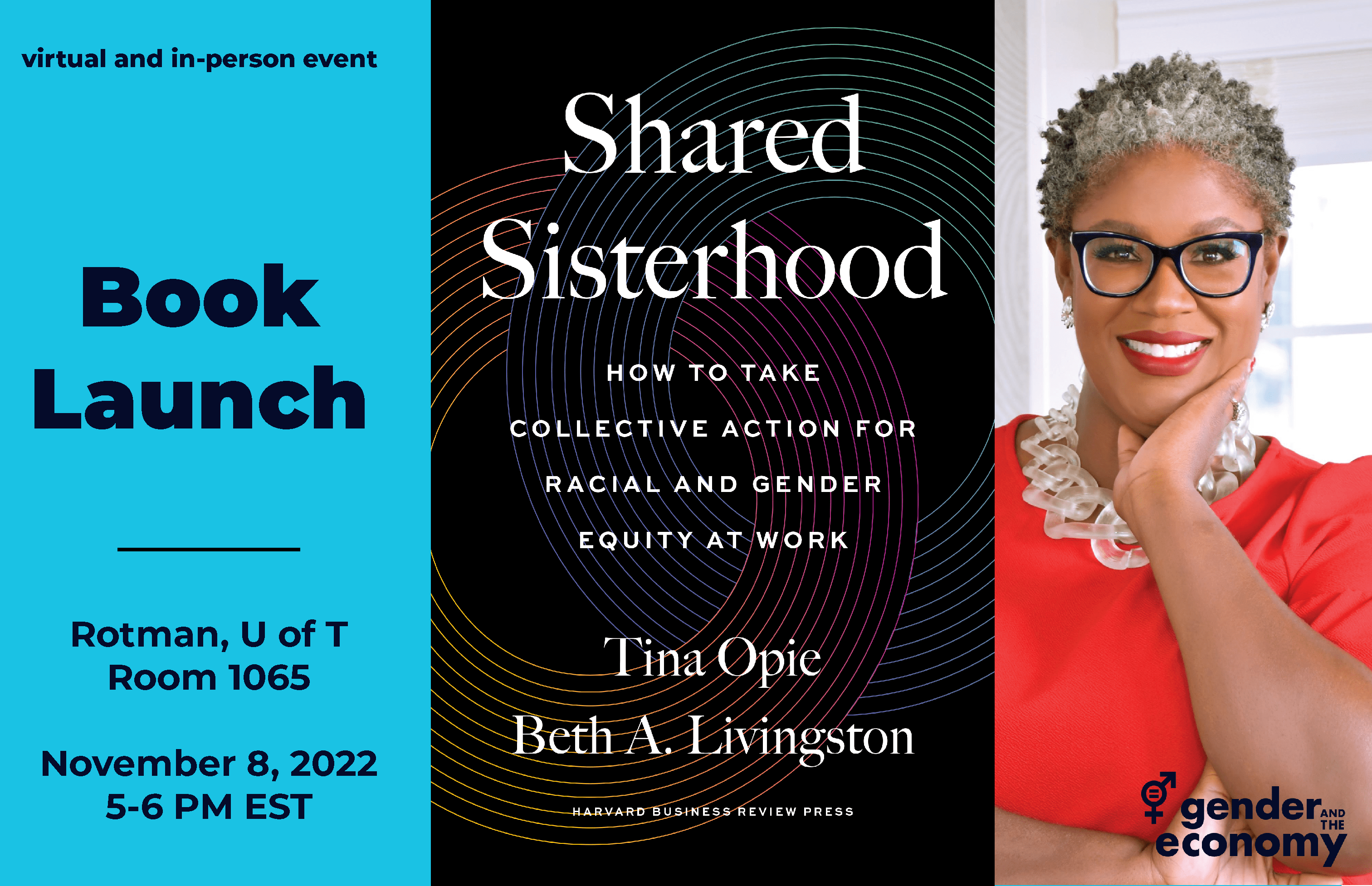Topic: Shared Sisterhood: How To Take Collective Action For Racial and Gender Equity At Work (Harvard Business Review Press, October 11, 2022)
GATE Faculty Research Fellow Sonia Kang recently hosted a thought-provoking conversation with Tina Opie, Associate Professor of Management at Babson College and an award-winning teacher, researcher, consultant, and speaker. Tina is a co-author of the new book, Shared Sisterhood: How to Take Collective Action for Racial and Gender Equity at Work. The book explores how to build crucial alliances through vulnerability, trust, empathy, and risk-taking, so that all women can advance in the workplace and create systemic change.
Although strides have been made towards equity in the last few decades, gender and racial bias persists in organizations and in society. Even more disconcerting, Black women and other women of color are held back more than their White counterparts. Most advice for women encourages individuals to speak up, be assertive, or lean in—to assimilate into a system modeled after White men. But individual action is not enough. Tina spoke of the need for collective action, highlighting that when marginalized and more privileged women work together, all women can experience the benefits of professional growth and equality. Using examples from the book she encouraged everyone to join the sisterhood, emphasizing that anyone, regardless of gender, can be a part of it.
Balancing a mix of history, research, and real-life examples, Tina broke down three key parts of the process of shared sisterhood:
- Dig into your own assumptions around racioethnicity, gender, and power
- Bridge the divide between women of all racioethnic groups through authentic relationships
- Advance all women across the organization and beyond
“Educate yourself, follow people who are different than you, and be honest with yourself about your own notions.” – Tina Opie
Watch Tina Opie discuss what shared sisterhood can look like




